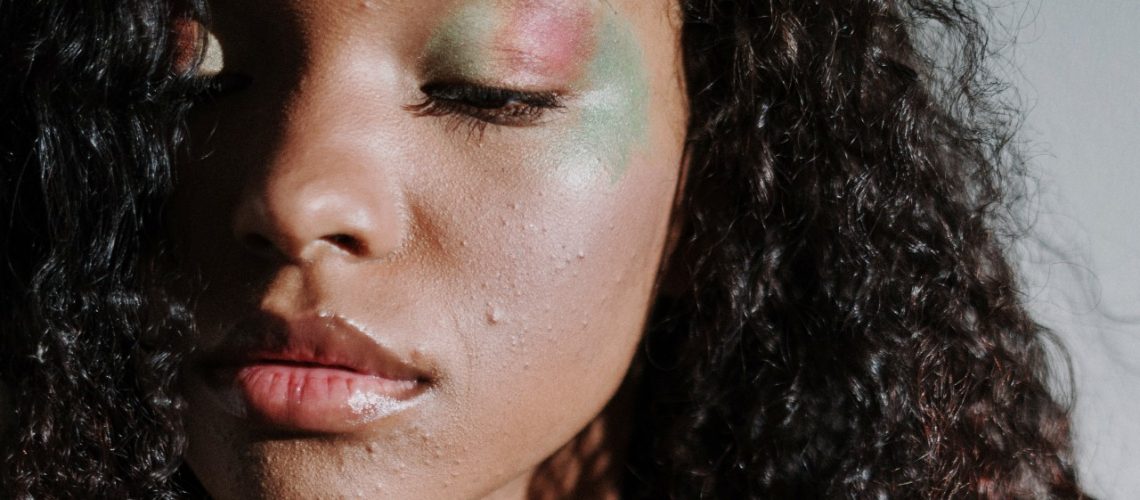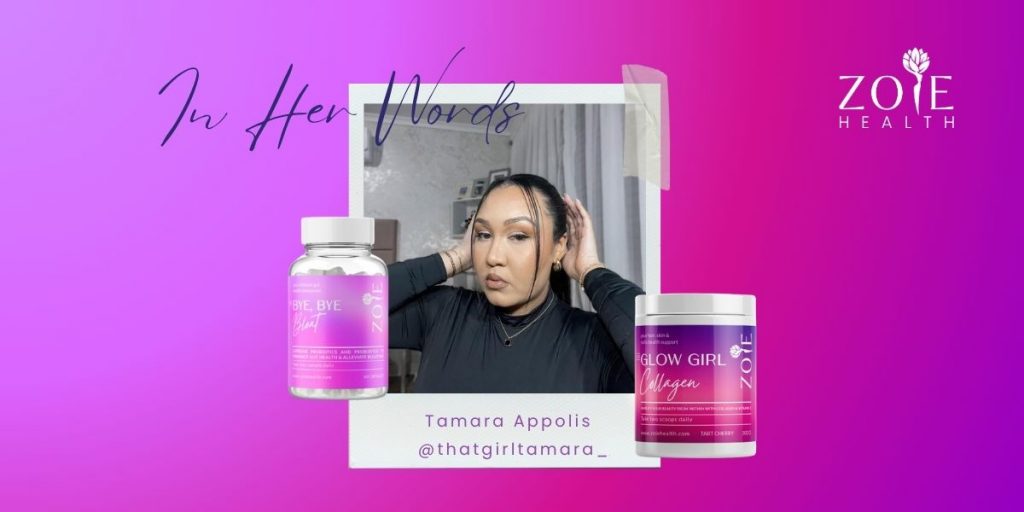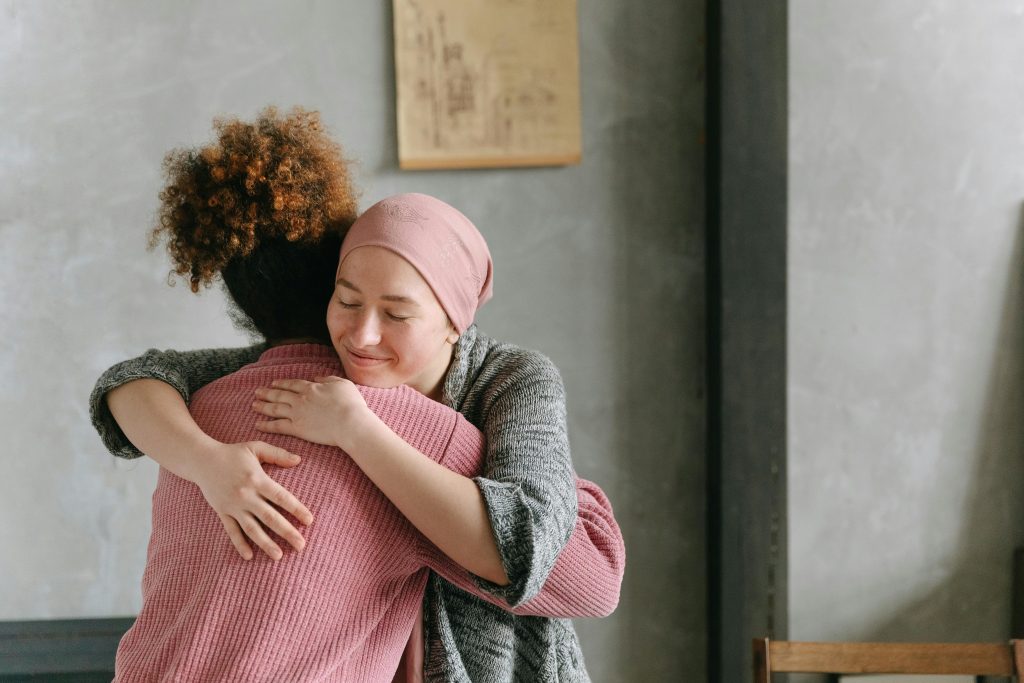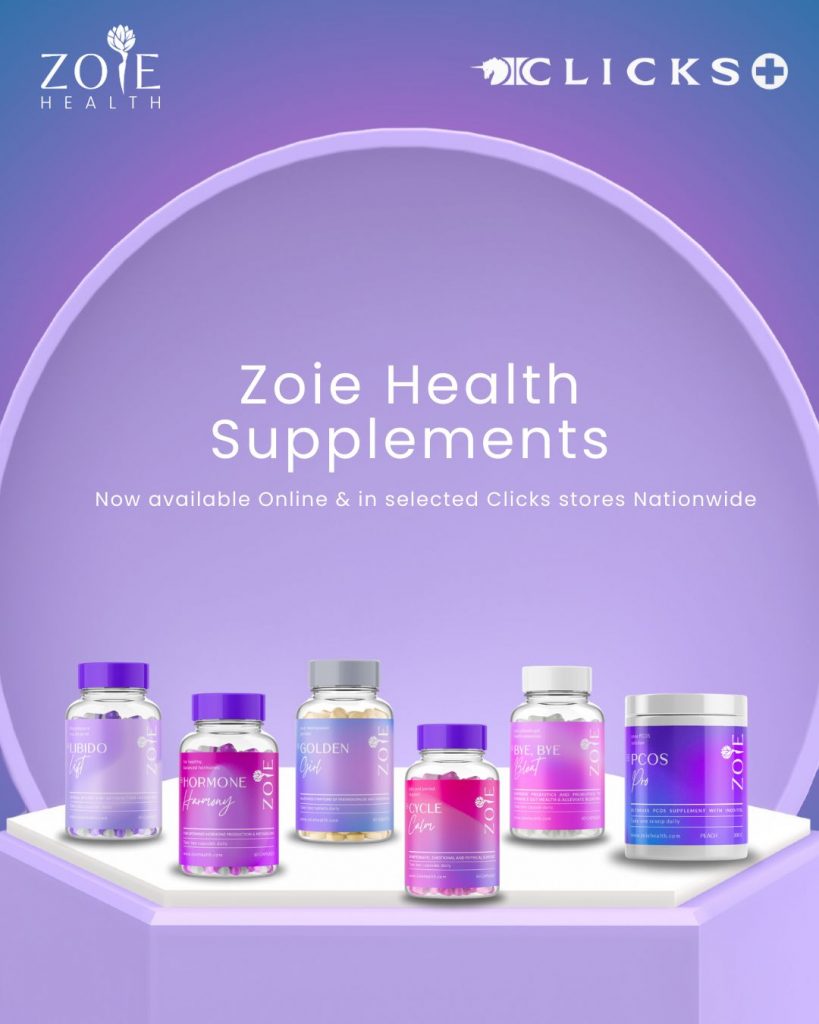These PCOS skincare hacks can change a lot for you, especially because trying to find a real skincare routine while battling PCOS can feel overwhelming. This is because the symptoms are widespread and acne breakouts seem to come with a fresh batch every other day.
Covering up breakouts can help disguise them, but finding the best treatments can help a whole lot in making you feel better about yourself and fixing the issue.
PCOS (Polycystic ovarian syndrome), is a hormonal disorder that affects a good number of things in your body. The name clues you in on what’s going on: poly, meaning many, and cysts, small, liquid-filled sacs inside a woman’s ovary. As a result of the cysts and hormonal imbalance, people with ovaries might struggle with egg development or its release.
From a hormonal point of view, PCOS causes an overproduction of androgens, a hormone found in large numbers in people with testes and in smaller numbers in people with ovaries. This means that the imbalance could lead to irregular or absent periods and painful cramps.
How PCOS Affects Skin
For skin, excess androgens as a result of PCOS can lead to unwanted acne, oily skin, excess hair on the face and dark patches.
Sometimes, hair growth is inward, leading to bumps in the skin, hiding what appears to be a zit but is actually hair failing to grow outward.
Breakouts are common for almost everyone, but the type and placement is a key indicator of hormonal acne.
If you’re suffering from PCOS, you’ll likely find breakouts along the bottom of your face: along the jaw, chin and neck. The zits are made up of cysts (fluid-filled pimples) and nodules (red, inflamed skin). Some nodules can be flat and not bumpy, but still, be sensitive and inflamed.
People with PCOS could also suffer from acanthosis nigricans: dark patches in the neck, underarms and groin which need to be treated with either OTC medication or prescription-strength ones. It’s usually a mark on insulin resistance, so see a doctor if you notice this on your skin.
PCOS Skincare Tips
When it comes to PCOS, a hormonal imbalance is the root cause to be treated. Things like exercise, eating anti-inflammatory foods and possibly taking medication to help regulate your hormones would be helpful to not just skin concerns but any other symptom.
Using certain products can help in mitigating the effects of PCOS on your skin. But if you’re not seeing results, see a specialist to treat your PCOS from the inside.
For Acne
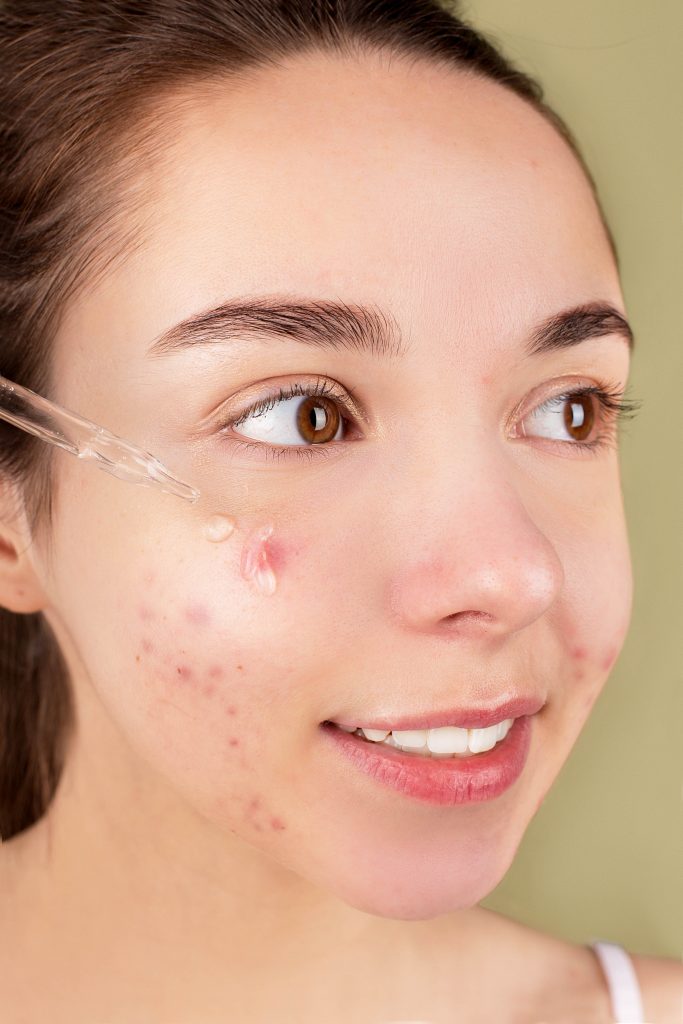
Try a face wash in the morning and evening that contains benzoyl peroxide, which targets surface bacteria. Another active ingredient to look out for is salicylic acid, which dissolves dead skin cells and prevents clogged pores.
Next, look for a serum that contains azelaic acid, an ingredient that occurs naturally in wheat, rye and barley. It’s been shown to improve acne, rosacea and pigmentation. Another ace ingredient for a serum is a retinoid. Aside from its anti-ageing boons, the vitamin A-derived chemical boost your skin’s collagen production and softens rough patches.
For lotions, pick one that’s not too thick for your skin. People with PCOS can often have oily skin, so make sure the consistency of your moisturiser feels good on your skin and not one that’ll make you sweat or feel thick and uncomfortable.
If you’re using these ingredients in your skincare routine but aren’t seeing results, see a dermatologist. You may be using too much product, exfoliating too much or need higher strength products. Alternatively, you may need to treat the hormone imbalance itself to really mitigate the effects on your skin.
For Facial Hair
If your facial hair is bothering you, PCOS skincare hacks could involve waxing, threading, or plucking the hairs to remove them. Laser removal is also an option. If you choose to remove hair by shaving or waxing, keep in mind that good exfoliation is important in minimising ingrown hairs.
To prevent hair from growing at all, you could look at hormonal medication or another treatment with your doctor.


